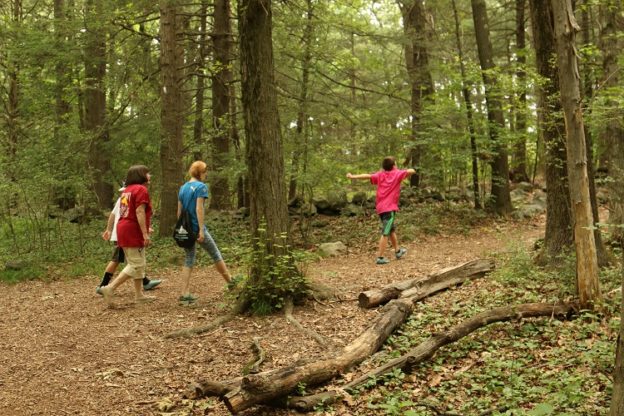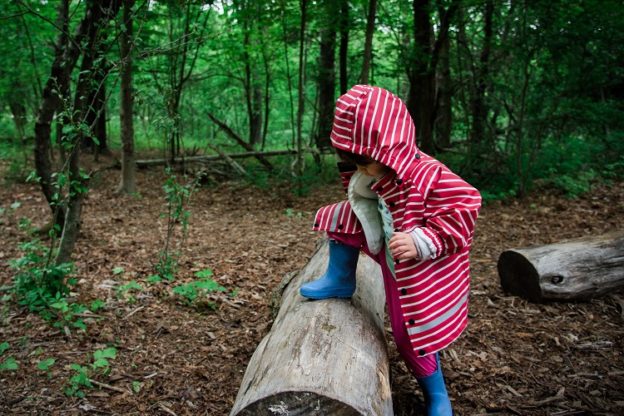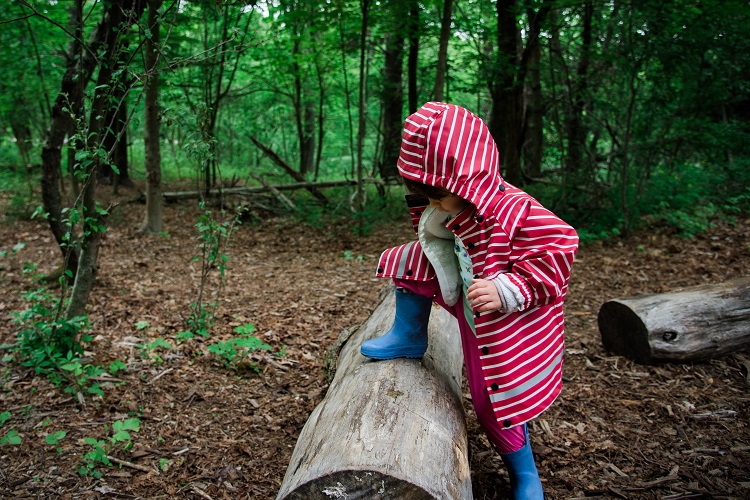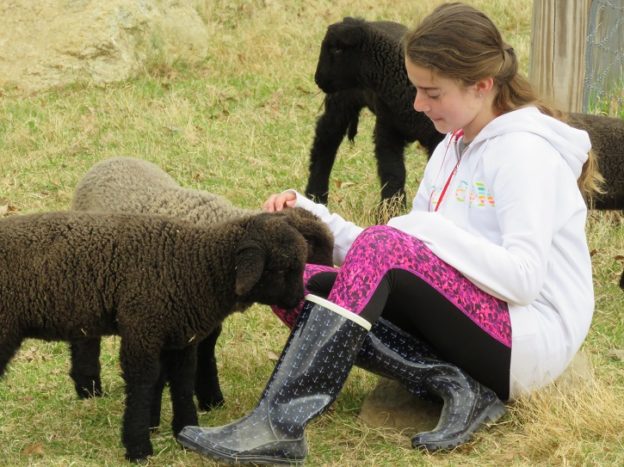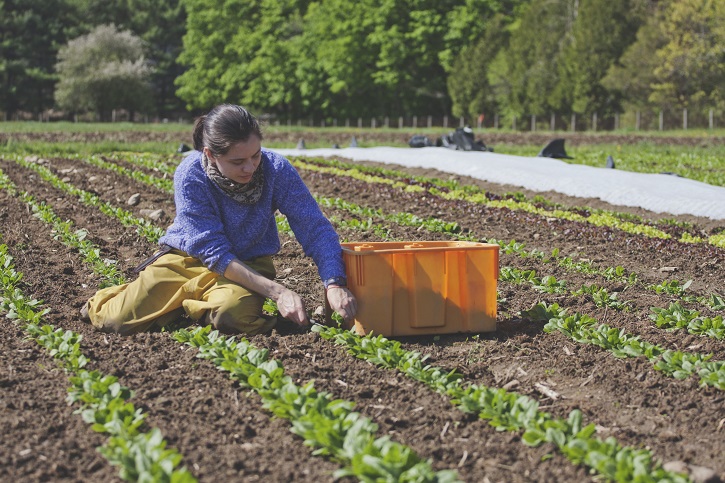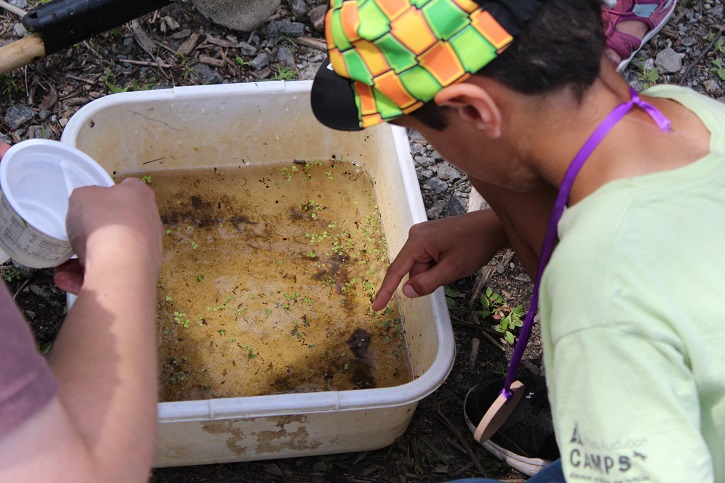As we adjust to new safe, meaningful ways to interact with nature, a new opportunity has bloomed for families in the Metro West area. Family groups of up to ten can now take private, guided tours of Drumlin Farm, Broadmoor, and Habitat Wildlife Sanctuaries.
A Mass Audubon Naturalist (masked and with appropriate social distancing) will lead your group on a two-hour exploration of your sanctuary of choice, guiding you through hands-on investigations of plants and animals, and observing and explaining ecosystem interactions and characteristics. Chose one of the offered themes, or customize one to your group’s interests. Optional activities for children such as scavenger hunts, nature drawing, movement activities, or story creation can also be arranged. Take a break from the screens with a safe, energizing trip through the great outdoors!
Broadmoor Wildlife Sanctuary, Natick
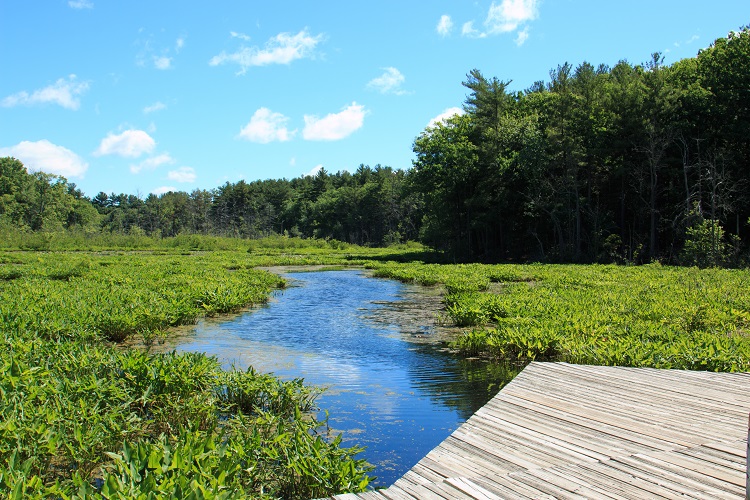
An expansive retreat along Indian Brook and the Charles River, Broadmoor is an ever-changing environment teeming with wildlife: dragonflies darting, turtles basking, otters leaving tracks in the mud, and more than 150 species of birds. Easy-to-moderate well-groomed trails lead you through the shade of mature woodlands into open fields and along the edges of streams, ponds, and marshland.
Themes: The Wonders of the Marsh, Field Mysteries, Into the Woods
Availability: Tuesdays–Fridays, August 4–October 30
Habitat Wildlife Sanctuary, Belmont
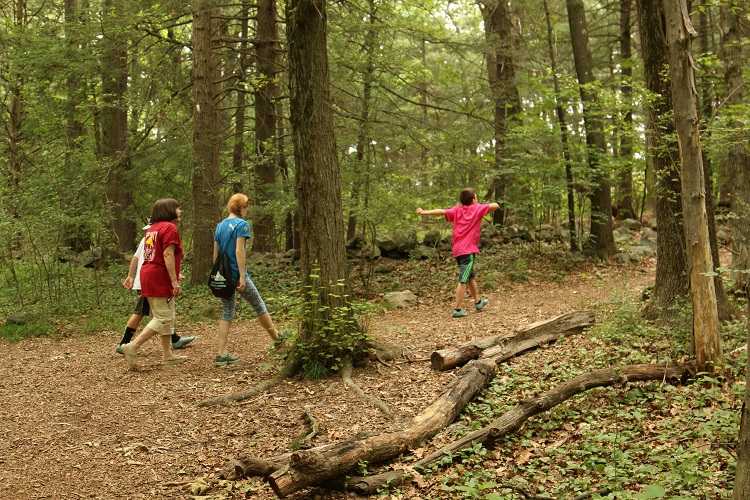
Four miles of gentle trails wind through deciduous and evergreen forests, across meadows, and around ponds and vernal pools at Habitat, located just seven miles from downtown Boston. Stop by and say hello to our family of goats on your trip!
Themes: Meadow Investigations, Pond Probe, Birds, Reptiles & Amphibians, Predator or Prey, Fairy Houses & Gnome Homes
Availability: Monday–Friday, August 3–October 16
Drumlin Farm Wildlife Sanctuary, Lincoln
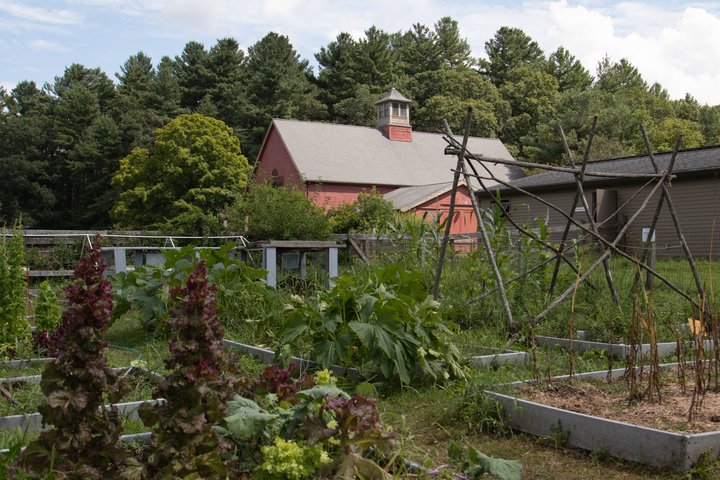
At Drumlin Farm, you can experience life on a working farm and explore a wildlife sanctuary at the same time. Watch the pigs, sheep, goats, chickens, and cows in the farmyard; see how crops are sustainably grown; walk the trails explore field, forest, and wetland habitat; and observe resident owls, hawks, and a fox in the native wildlife exhibit.
Themes: Farm Chores, Pond Explorations, Habitat Hike
Availability: Monday–Friday, September 14–December 18


